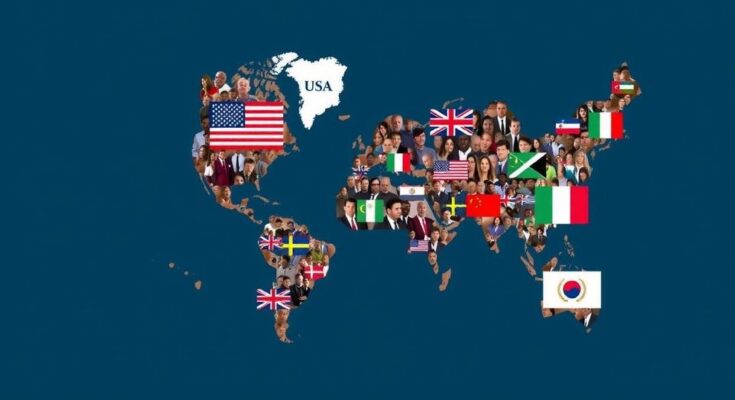The U.S. government will not renew the humanitarian parole program for Venezuelans, Haitians, Cubans, and Nicaraguans, requiring those who entered under the program to leave after two years if they do not qualify for other immigration options. The program, initially aimed at addressing migration crises, sees its termination amid mounting political pressures and heightened scrutiny over immigration policies.
The U.S. government has announced the decision not to renew the humanitarian parole program that permitted substantial numbers of Venezuelans, Haitians, Cubans, and Nicaraguans to enter the United States over the past two years. This program, initially designed to provide legal entry routes for those fleeing dire circumstances in their home countries, will see individuals who utilized it facing departure from the U.S. after their two-year authorizations expire if they do not qualify for other immigration options. The administration’s action follows a tightening of immigration policies amid increasing political scrutiny in a high-stakes election cycle. The Department of Homeland Security (DHS) confirmed to various media outlets that the program, which began for Venezuelans in October 2022 and was subsequently expanded to include Cubans, Haitians, and Nicaraguans in January 2023, was never intended to be permanent. While some may apply for Temporary Protected Status, many will need to leave the U.S. if they do not secure other forms of legal residency. Advocates highlight the pressing humanitarian crises in these countries, particularly Venezuela, where President Nicolas Maduro’s government has intensified repression against dissent, exacerbating the migration crisis. President Biden’s policies aimed at curtailing illegal border crossings have often highlighted the success of this parole initiative, which has contributed to a significant decrease in encounters with migrants from the designated countries, credited as dropping by over 99%. However, the lack of renewal for the program indicates a shift towards stricter immigration controls, reflective of the political landscape where Republicans have criticized the administration for overstepping executive powers. Participating organizations and advocates have expressed concern that this decision, particularly without an immediate alternative available, could drive desperate individuals back to irregular and potentially perilous migration pathways. The cessation of this program has sparked calls for reconsideration and further protective measures, particularly given the turbulent political and economic environments in the affected nations.
The humanitarian parole program implemented by the Biden administration was established to allow individuals fleeing crisis in their home countries, specifically Venezuela, Haiti, Cuba, and Nicaragua, to enter the United States legally. Initially focusing on Venezuelans in October 2022, the program expanded in January 2023 to include three additional nations, promoting legal pathways and reducing illegal crossings at the U.S.-Mexico border. With over half a million people having utilized this pathway for entry, the decision not to renew the program raises pressing questions about the future of these individuals, many of whom now face potential deportation as their permissions expire. Amid the backdrop of a contentious political environment surrounding immigration, this decision has drawn both support and criticism, highlighting the complexities of U.S. immigration policy in times of crisis.
The U.S. government’s decision to discontinue the humanitarian parole program for Venezuelans, Haitians, Cubans, and Nicaraguans represents a significant shift in immigration policy, marked by a focus on stricter enforcement measures. While this program was designed to offer temporary relief, its termination may leave many migrants vulnerable to deportation and unable to secure legal residency. The move has sparked concern among advocates and migrants alike, reflecting the delicate balance between immigration regulation and humanitarian response in an increasingly polarized political climate.
Original Source: www.miamiherald.com




